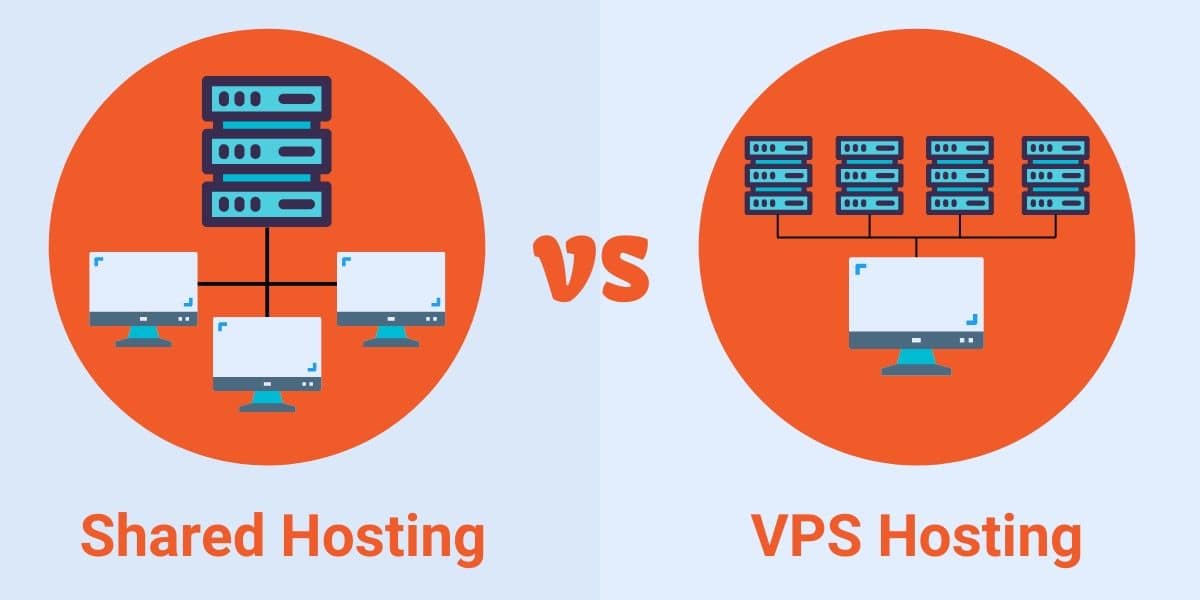The fundamental distinction between shared hosting and virtual private servers is that shared hosting offers a package that is pre-configured and ready to use, which restricts your customization possibilities, while VPS gives you complete freedom. However, the VPS configuration might not be the greatest choice for beginners because it calls for some technical expertise.
Since you share a server with other websites, shared hosting is, in general, the less expensive choice. Despite having a finite amount of resources at your disposal, you may affordably manage a small website. While VPS hosting is more expensive, it offers more performance and independence.
As understanding the broad definitions of the two hosting kinds is insufficient, we will give you some hosting comparisons between the two hosting types to aid in your decision-making.
Safety and Efficiency
No matter what kind of website you run, security is crucial. Although there are some distinctions between the two hosting options, both are generally stable and secure ways to host your website.
When there is a problem on another website, shared hosting could have an impact on your website. Also, if other websites use too much of the available shared bandwidth, your website may slow down. This is particularly important if your website experiences significant traffic levels.
Using a VPS will help you avoid this issue because the partitioned servers ensure that each website functions properly. Yet, you should think about your options if you lack the technical know-how to maintain your virtual private server. It can cause a tonne of other issues if it is not treated properly.
Control: VPS hosting is better than shared hosting if you want more sophisticated options for your website. It gives you root access to the server so you can install your own operating system, control panel, and software to enhance the security and functionality of your website. Check out Cyberpanel hosting, which includes an intuitive control panel preinstalled, if you’re searching for a simple setup.
Using a shared hosting package, however, restricts you to just preset server configurations. For those who don’t want to interfere with server management activities on their own, this may be more convenient.
Server Management: You won’t need to do any technical upkeep if you decide to host your website with shared hosting. Shared hosting companies will set up the shared server, install and update any essential software, such as cPanel or hPanel, and keep an eye on the servers to prevent downtime and efficiently manage the back end.
But, controlling resources for VPS hosting is a little bit more challenging. To manage and administer it, you need some more sophisticated understanding. Thankfully, VPS hosting gives you root access and enables you to install and adjust software and apps to improve the speed of your website.
Scalability: As contrast to shared hosting, VPS hosting is significantly simpler to scale up. Shared hosting is a fine choice for a short-term strategy or a tiny online website, but if your site experiences huge traffic volumes, you’ll have more issues with the general performance. If you have a clear idea of how rapidly and easily your site will grow in the future, VPS hosting could be a wise financial decision.
Pricing: Without a doubt, shared hosting triumphs in this category. VPS web hosting costs do, nevertheless, support its higher advantage. This table lists the prices for Hostinger’s shared hosting packages.
